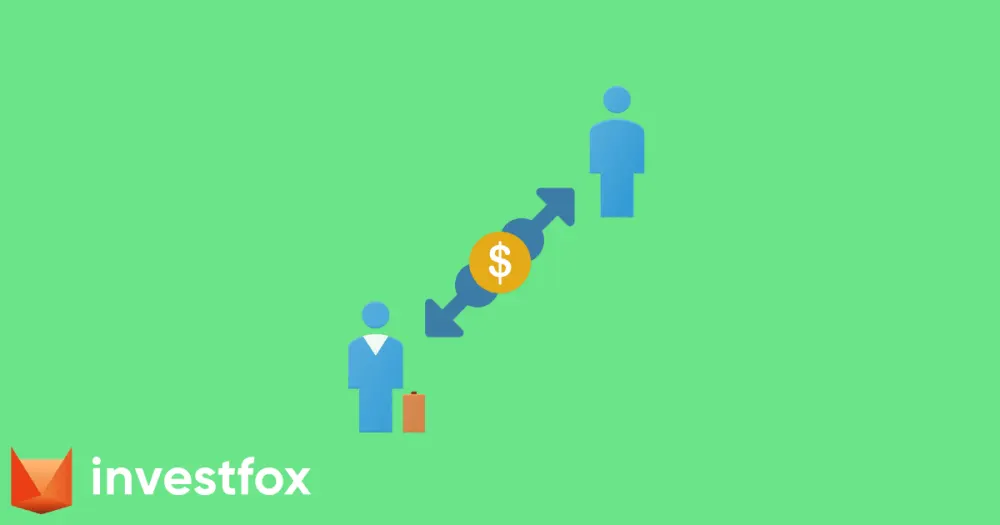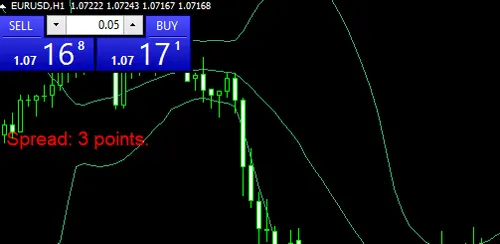Our partner, XM, lets you access a free demo account to apply your knowledge.
No hidden costs, no tricks.

If you are new to financial markets and FX trading, you would already hear the term spreads. Many brokers advertise low spreads, and it is essential to know the ins and outs of this crucial part of trading. Every time you open a buy or sell trade, you also pay the spread. Starting FX trading, without extensive knowledge of spreads and their impact, can greatly affect trading performance.
Let’s explain every important aspect of spreads in FX trading in the guide below.
Forex trading involves speculating on the assets' prices and trying to make a profit from price movements. To explain it in simple terms, you try to buy cheap and sell at a higher price. The main market participants who try to speculate on price movements are called traders. Traders try to predict what the next market movement will be and capitalize on that by selling short selling or buying the asset. If a trader thinks that the price for EURUSD will rise, they will place a buy order to close it when the price moves higher.

The spread essentially is the difference between the buy and sell prices on the financial market, and you have to pay them each time you open or close the trading position. Another formal way to define spreads is as follows: the spread is the difference between the Ask and Bid prices. To be more precise, when you buy a EURUSD pair you pay the Ask price and when you sell it you pay the Bid price. The spread is paid twice and can make trading very expensive if they are high. For EURUSD the spread is the fourth decimal point in price. In the image above, the difference between buy and sell is 0.000003 or 3 points. 1 pip is the fourth decimal place and is usually 10 points. 3 Points, thereby, equals 0.3 pips and is a very low spread for major pairs. The industry standard spread for Forex major pairs is around 1 pip. Any spread below 1 pip is highly desirable if it's without trading commissions. The industry average commission is around 7 USD per lot round turn. Round turn means to open and close a trading position. If you are trading on an account with trading commissions, ensure your spreads are near 0 pips.
Calculating the spread is a very straightforward process, just deduct the Ask price from the Bid price. What you will get will be the fourth decimal point. If you want to convert your result into pips, you can multiply it by 100,000 which is the size of a standard lot.
While some brokers offer fixed spreads that never change, the majority of them offer floating or variable spreads. Variable spreads change according to market conditions and can affect trading performance if the trader is not closely monitoring it every time they open a trading position.
The most prominent factor that usually shakes spreads is highly volatile market conditions. Volatility increases during major macroeconomic news events and geopolitical news. Fundamental factors directly influence spreads and can make trading very expensive.
Liquidity is another factor that can widen spreads. Low liquidity means higher spreads. Exotic currency pairs typically have wider spreads because their liquidity is extremely low. When few traders are trading an asset or trading volumes are low, liquidity decreases and vice versa. Traders always prefer to trade when liquidity is high to ensure low spreads and quick order execution.
Spreads can change the outcome of a trading position if the strategy is a scalping or extremely short-term one. Some traders prefer to capitalize on extremely short price movements, which are typically several pips. If spreads are high, profitability can suffer. For traders who target large movements, spreads have a lesser impact.
Depending on the trading style and method you are using, you may want to trade with low spreads. In this case, some brokers offer zero-spread accounts that have spreads from 0 pips. These accounts usually charge a small commission for each trading position and offer traders the unique ability to profit from extremely short price movements. For day traders and swing traders who may have their trading positions opened for numerous days, lower commissions are more priority. So, if you are a scalper go for lower spread accounts and if you are a day trader or a swing trader look for accounts with lower commissions.
Spreads are the difference between Bid and Ask or buy and sell prices.
Lower spreads are preferable for traders who are speculating on short-term price movements
Two factors affect the spread most: liquidity and volatility. Higher volatility can widen spreads making it more expensive. Lower liquidity also widens spreads and makes trading riskier.
Traders should select trading accounts according to their trading strategies: short-term traders or scalpers prefer low spreads, while longer-term traders prefer lower commissions
Our partner, XM, lets you access a free demo account to apply your knowledge.
No hidden costs, no tricks.